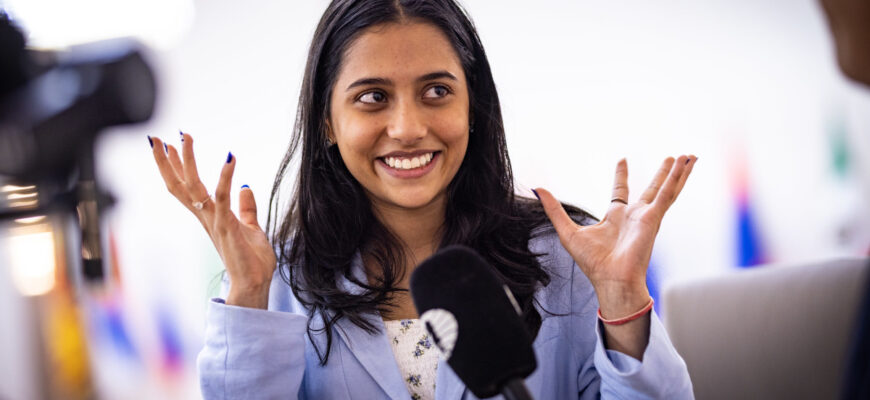In the high-stakes arena of the FIDE Women`s Chess World Cup in Batumi, a remarkable narrative has unfolded. At just 19 years old, India`s **Divya Deshmukh**, an International Master poised on the brink of Grandmaster status, has made an indelible mark. In her inaugural World Cup appearance, she has not merely participated; she has dominated, carving a path through a field of seasoned veterans to secure a coveted spot in the final.
A Trail of Fallen Giants
Divya`s journey to the final has been nothing short of spectacular. Far from being intimidated by the elite competition, she has systematically dismantled higher-ranked opponents. Her list of accomplishments includes decisive victories over second seed Zhu Jiner and her more experienced compatriot, Harika Dronavalli. The most significant scalp, however, came in a grueling semifinal clash against China`s **Tan Zhongyi**, a former Women`s World Champion who had just contested the World Championship match mere months prior. This was not a win secured by chance, but by sheer will and strategic acumen.
The Semifinal Saga: A Test of Fortitude
The semifinal against Tan Zhongyi was a masterclass in resilience. After a relatively swift draw in the first game where Divya, playing with black, secured a solid start, the second game proved to be an arduous battle. Zhongyi, leveraging her experience, found herself with an advantage at one point, pushing Divya into time trouble. The chess engine, that relentless arbiter of truth, even indicated a favorable position for the Chinese veteran around move 30. For a moment, it seemed the seasoned hand might prevail.
Yet, chess, like life, is full of twists. A series of critical inaccuracies from Zhongyi between moves 32 and 35 unexpectedly shifted the momentum. Divya, despite her youth, demonstrated a composure that belied her years. While both players traded minor errors in the later stages, it was Divya who consistently found a way to regain the upper hand. Even when she let a significant advantage slip on move 79, bringing the game to near parity, her refusal to yield was her greatest asset. One might expect a young player, exhausted and under immense pressure, to falter. But this new generation of Indian chess players, it seems, operates on a different philosophy: *never stop pushing.*
And push she did. Zhongyi, under the relentless pressure, finally made a decisive blunder on move 90. From that point, Divya secured the win, a victory that was perhaps less about pristine, perfect play and more about unwavering perseverance. As Divya herself humbly noted post-game, she could have played better, sought a smoother path to victory. Such is the exacting standard of a top-tier chess player. But for observers, this hard-fought triumph was a testament to her tenacity.
Beyond the Board: A Star`s Ascension
This monumental achievement has far-reaching implications. Divya`s qualification for next year`s **Candidates Tournament** means she now stands on the precipice of contending for the Women`s World Championship itself. She also claims the distinction of being the youngest finalist in the Women`s World Cup, surpassing Nurgyul Salimova`s record from 2023. Furthermore, she joins Salimova as one of only two International Masters to reach this prestigious final stage, a remarkable feat given the usual Grandmaster dominance.
Her performance in Batumi is not an isolated incident but a continuation of a decorated young career, following her individual and team gold medals at the FIDE Olympiad a year prior. Divya Deshmukh is not just a participant; she is a trailblazer, representing the vanguard of a new wave of chess talent emerging from India, fearless and formidable.
As the chess world eagerly awaits the outcome of the other semifinal between Lei Tingjie and Koneru Humpy, the prospect of an all-Indian Women`s Chess World Cup final looms—a scenario that would be nothing short of historic and a true testament to the surging strength of Indian chess.
Regardless of the final result, Divya Deshmukh has etched her name into the annals of chess history. Her journey in Batumi will be remembered as the moment a 19-year-old International Master slayed giants, defied nerves, and announced her arrival on the grandest stage.









